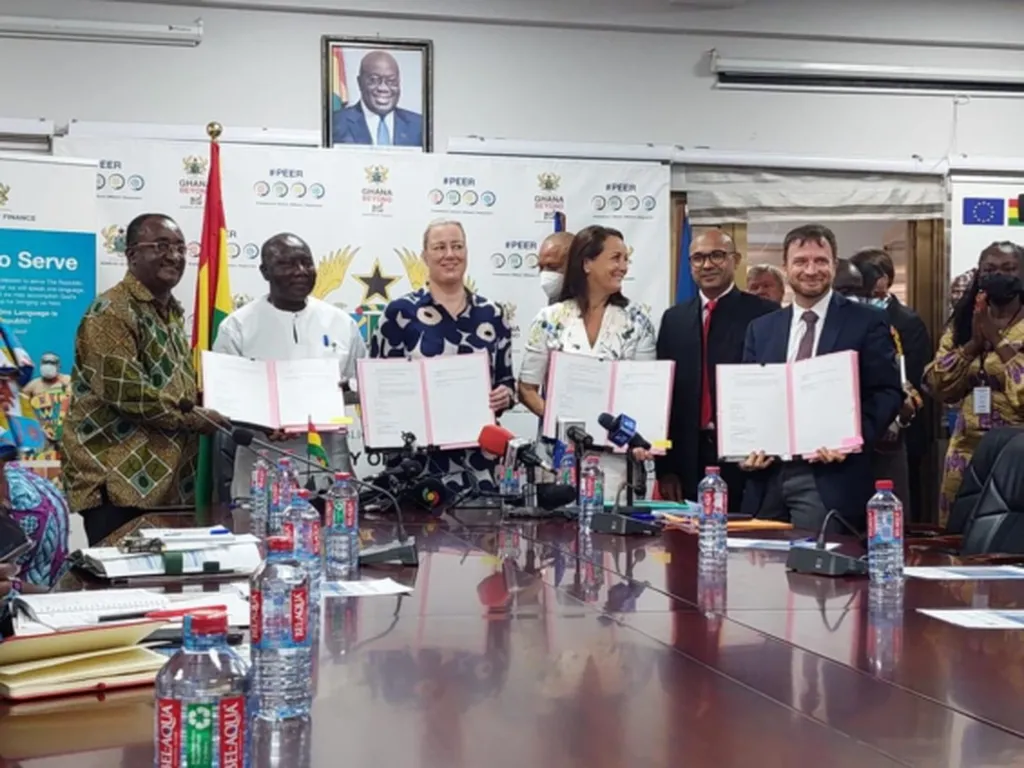The Ghanaian government has secured a significant €47 million grant from the European Union to bolster irrigation farming across the country. This investment, announced by the Minister of Agriculture, Eric Opoku, aims to transform the agricultural landscape by enabling year-round food production on farmlands.
Speaking at the opening of a two-day conference on food, agriculture, technology, and sustainability at the Ho Technical University in the Volta Region, Minister Opoku highlighted the pressing need for improved irrigation infrastructure. He expressed concern over the current underutilization of the country’s irrigable land, noting that only 12% of the available 1.9 million hectares is being used for irrigation purposes.
The conference, attended by approximately 200 stakeholders including farmers, agribusiness leaders, students, and members of the public, focused on innovative strategies to enhance food production and sustainability. Key topics discussed included the untapped potential of Ghana’s cotton value chain, circular strategies to reduce food loss and waste, access to quality mechanization services, and gender inclusion in agriculture within the Volta and Oti regions.
Minister Opoku emphasized the importance of engaging the youth in farming, citing the bright future of the agricultural sector and the guaranteed returns it offers. He also highlighted the government’s commitment to improving infrastructure, including an GH¢800 million fund allocated to fix roads connecting farming communities. Additionally, the government plans to support second cycle institutions in establishing viable school farms and encourage universities to demonstrate their research findings in the field to boost crop yields.
Professor Eric Yirenkyi Danquah, a professor of Plant Molecular Genetics at the University of Ghana, asserted that Ghana possesses sufficient human capital to achieve food security. He stressed the need for universities to focus on quality education and research in food production, urging the government to provide adequate funding for these initiatives.
The Volta Regional Minister, James Gunu, pledged the Regional Coordinating Council’s collaboration with the Ho Technical University to enhance food production and security. Professor Obok Oduro, a Professor of Postharvest Technology at KNUST, highlighted the paradox of food production in Ghana, where despite increased output, many citizens still struggle to access a balanced diet. She pointed to recent analyses indicating that 3.2 million Ghanaians face food insecurity, particularly in the Northern, Savannah, and Eastern regions, and called for a vigorous rethinking of strategies to address these challenges.
This EU grant and the discussions at the conference underscore the critical role of irrigation, youth engagement, and research in transforming Ghana’s agricultural sector. By investing in infrastructure, education, and innovative practices, the country aims to achieve sustainable food security and economic growth.

